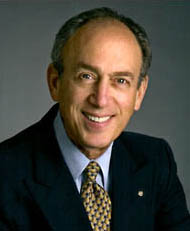Dr. Leis: Is a 3rd Pronoun Necessary?
While non-transgender individuals – often called cisgender — are referred to with the same pronoun for their entire lives, for many transgender individuals, the gendered pronouns of “he” and “she” do not always align with the gender that they identify with. Advocates across the country have discussed the development of a third-person pronoun, and how this could help a transgender person navigate hurdles of identity and allow for a more seamless transition to the opposite gender.
Recently, new words such as “ze,” “xe,” and “ey” have been brought up as possible alternatives to the gender-specific pronouns widely used today. Certain higher education institutions, including American University in Washington, D.C., have created content on their website that helps individuals learn how to properly pronounce these new pronouns, as well as how to properly address non-binary gender individuals. This trend has been seen on other college campuses as well, including Harvard University, which now allows students to select from a wide range of gender-neutral pronouns when filling out official school forms.
“Transgender individuals want to be treated with respect and with dignity, and though peers can show this most effectively through their actions and attitudes, referring to them with their desired pronoun can help to strengthen their new identity,” said Dr. Leis. “Despite talk of developing a new pronoun, the majority of transgender individuals will prefer to be called “he” or “she,” as they are proud to have achieved their goal and want to be embraced with their new identity.” While media reference guides exist for accurate reporting on transgender people, this practice is not yet widely used among society. “In order to assist with this, hospitals can offer tips on terms to avoid when speaking to or about a transgender individual,” said Dr. Leis. “If professionals in the medical field can provide a simple language sheet to assist allies of transgender individuals, society as a whole will begin to follow these guidelines.”
While “they” can be used to describe an individual with a non-binary gender, this also creates an idea of gender ambiguity, something that the majority of transgender people try to avoid. Current pronouns not only assign a gender to an individual, but they box the individual into the confines and definitions of that gender. “Simply asking an individual what they wish to be called can do wonders for their transition and the development of their gender identity,” said Dr. Leis. “Unfortunately language remains one of the many barriers that transgender individuals have to deal with on a daily basis, and this does not have to be the case if they receive the respect that they deserve in their transition.”
Dr. Sherman Leis is one of the world’s pre-eminent transgender surgeons and founder of The Philadelphia Center for Transgender Surgery. The Center is located in suburban Philadelphia at 19 Montgomery Avenue, Bala Cynwyd, PA 19004. Phone: 610-667-1888. Visit their website.
Category: Transgender Community News, Transgender Opinion












“While “they” can be used to describe an individual with a non-binary gender, this also creates an idea of gender ambiguity, something that the majority of transgender people try to avoid.”
Isn’t that a self-contradictory statement? Don’t the tiny percentage of non-binaries ‘want’ ambiguity, by their very self-definition?
I believe the majority of trans-people would have to acquiesce to the demands of the minority in this, as in all such cases, in the interests of inclusion etc.
Btw, the chances of the greater American public adopting the ‘xe,ze,ey’ terminology is about the same as us going metric. We all know how that movement fizzled out in the ’70’s. 🙂